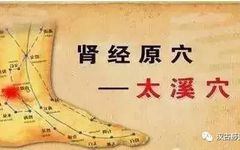
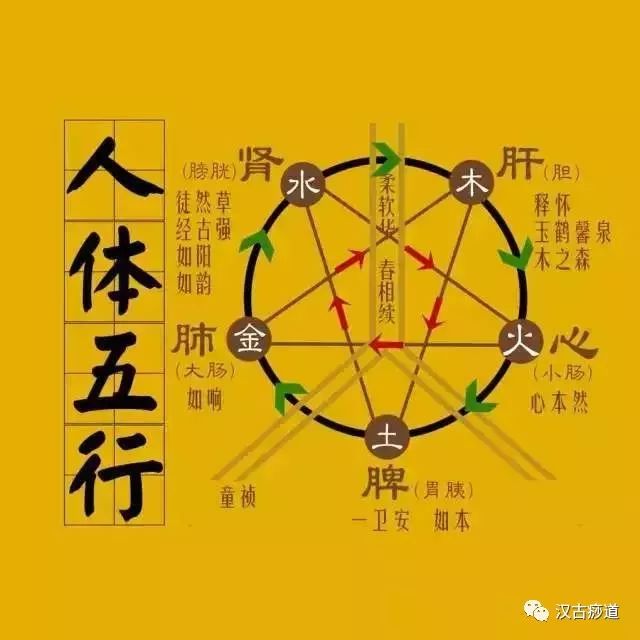 Deficiency syndromes refer to a variety of chronic diseases caused by the deficiency of organs and weakened vital energy. Although these syndromes are numerous and complex, they are always related to the five organs, and the damage to the five organs generally involves Yin, Yang, Qi, and Blood. In summary, there are Yin deficiency, Yang deficiency, and both Yin and Yang deficiency; Qi deficiency, Blood deficiency, and both Qi and Blood deficiency. Deficiency syndromes are clinically common, and as long as differential diagnosis and treatment are applied, along with holistic treatment and mastery of the acupuncture points and methods for tonifying deficiency, satisfactory results can be achieved. Today, we will share the symptoms and improvement methods of the four common types of deficiency syndromes for your daily reference.According to the common deficiency syndromes of the five organs, they can be summarized as follows:
Deficiency syndromes refer to a variety of chronic diseases caused by the deficiency of organs and weakened vital energy. Although these syndromes are numerous and complex, they are always related to the five organs, and the damage to the five organs generally involves Yin, Yang, Qi, and Blood. In summary, there are Yin deficiency, Yang deficiency, and both Yin and Yang deficiency; Qi deficiency, Blood deficiency, and both Qi and Blood deficiency. Deficiency syndromes are clinically common, and as long as differential diagnosis and treatment are applied, along with holistic treatment and mastery of the acupuncture points and methods for tonifying deficiency, satisfactory results can be achieved. Today, we will share the symptoms and improvement methods of the four common types of deficiency syndromes for your daily reference.According to the common deficiency syndromes of the five organs, they can be summarized as follows:
Qi deficiency: Refers mainly to lung Qi and spleen Qi deficiency.
Blood deficiency: Refers mainly to heart blood and liver blood deficiency.
Yang deficiency: Refers mainly to heart Yang, spleen Yang, and kidney Yang deficiency.
Yin deficiency: Refers to lung Yin, spleen Yin, heart Yin, and kidney Yin deficiency.
The above four types of syndromes often appear together in clinical practice, for example: lung and kidney Yin deficiency, heart and liver blood deficiency, spleen and kidney Yang deficiency, etc. Careful differentiation is essential during diagnosis.
1. Qi deficiency1. Lung Qi deficiency
Main symptoms: Shortness of breath, spontaneous sweating, susceptibility to colds, pale face, and pale tongue.
Treatment principle: Tonify the lungs and benefit Qi.
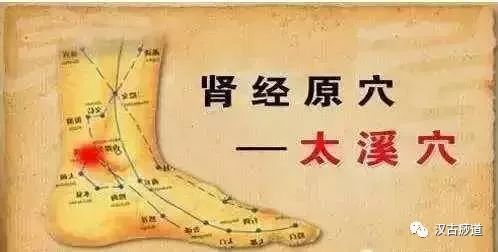
Acupuncture points: Taiyuan (太渊), Feishu (肺俞), Taixi (太溪) (Taiyuan, Feishu, Hegu, and Zhongfu are all key points for tonifying lung Qi; Taiyuan mainly tonifies lung Qi and nourishes lung Yin, Hegu tonifies lung Qi and regulates intestinal Qi, Zhongfu is more adept at broadening the chest and regulating lung Qi, while Feishu purely tonifies lung Qi with less regulation of Qi. Taixi tonifies kidney Qi and nourishes kidney Yin, as lung Qi is rooted in the kidneys.)
2. Spleen Qi deficiency
Main symptoms: Reduced appetite, discomfort in the stomach after eating, easy fatigue, loose stools, and a yellowish complexion.
Treatment principle: Strengthen the spleen and benefit Qi.
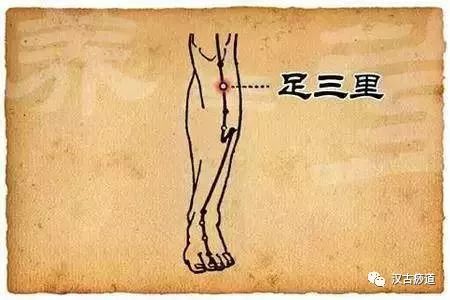
Acupuncture points: Zusanli (足三里), Yinlingquan (阴陵泉), Hegu (合谷) (Zusanli is the most important point for strengthening the spleen and stomach, adept at tonifying intestinal deficiency, stomach, and spleen deficiency, and should not be used for excessive draining. Yinlingquan is good for strengthening the spleen, treating blood disorders, removing dampness, and is often used for reducing swelling and weight loss. Hegu has a similar function to Qihai and is good for tonifying Qi throughout the body.) Of course, if accompanied by loose stools, moxibustion on Feishu can be added, as Feishu is good for purely tonifying the spleen.)
2. Blood deficiency1. Heart blood deficiency
Main symptoms: Palpitations, frequent dreams, pale complexion, and pale tongue.
Treatment principle: Nourish blood and calm the spirit.
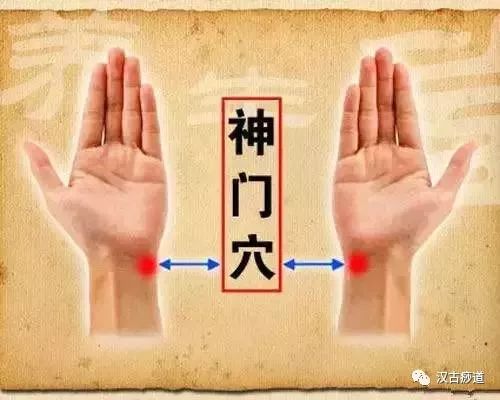
Acupuncture points: Shenmen (神门), Xinshu (心俞), San Yin Jiao (三阴交) (Shenmen is the source point of the heart meridian, adept at calming the spirit and can tonify or drain; it can tonify heart Qi or drain heart fire. Xinshu is often used to tonify heart Qi and blood and should not be drained. San Yin Jiao is a point of the spleen meridian but is a thoroughfare for the liver, kidney, and spleen meridians, thus very good for nourishing blood, tonifying blood, invigorating blood, and nourishing all Yin conditions. It can also be used for conditions of Yin deficiency with excess fire.)
2. Liver blood deficiency
Main symptoms: Dizziness, palpitations, tinnitus, women with scanty or absent menstruation, and pale complexion.
Treatment principle: Tonify blood and nourish the liver.
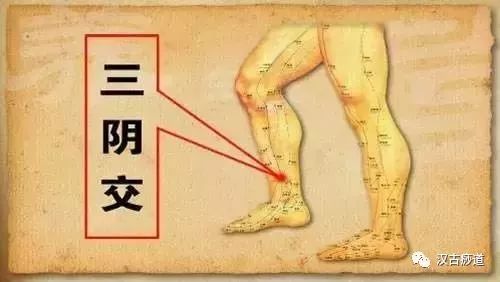
Acupuncture points: San Yin Jiao (三阴交), Ququan (曲泉), Gan Shu (肝俞), Jianshi (间使) (San Yin Jiao has been mentioned before; it is essential for blood conditions! Blood conditions generally involve points on the spleen, liver, and heart meridians. Ququan nourishes the liver and drains excess liver Yang. Jianshi is mainly used to move Qi and open the channels; if accompanied by headaches or dizziness, Taichong (太冲) should be added, as Taichong is primarily responsible for draining and regulating liver Qi, thus it is better to drain than to tonify.)
3. Yang deficiency1. Heart Yang deficiency
Main symptoms: Palpitations, spontaneous sweating, chest tightness and pain, cold limbs, pale or dark purple tongue.
Treatment principle: Warm and tonify heart Yang.
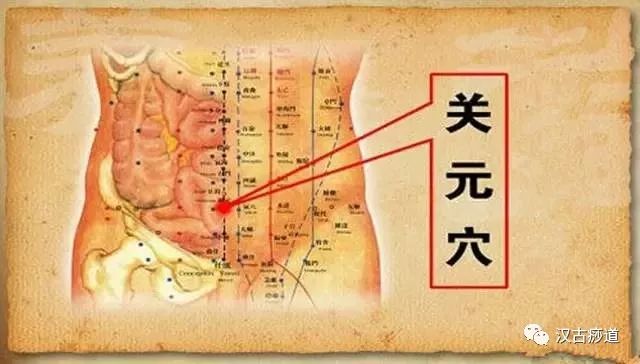
Acupuncture points: Xin Shu (心俞), Shen Men (神门), Guanyuan (关元) (Xin Shu can directly replenish energy; this point can greatly tonify heart Qi and blood but should not be drained. If you want to drain heart heat, it is best to use Shen Men. Shen Men is the source point of the heart meridian and can tonify or drain; for heart Yang deficiency, moxibustion can be applied here. Guanyuan is the place where the greatest Yang energy of the body converges; if you want to invigorate Yang energy, Guanyuan should be the first choice.) If the patient has chest tightness and pain, Jianshi can be added to regulate Qi and relieve pain. Adding Ge Shu (膈腧) can invigorate blood and resolve stasis. Ge Shu is better for treating upper body blood conditions, while San Yin Jiao is better for lower body blood conditions.
2. Spleen Yang deficiency
Main symptoms: Reduced appetite, feeling cold, abdominal cold pain, borborygmi, diarrhea, or even undigested food.
Treatment principle: Warm the middle and strengthen the spleen.
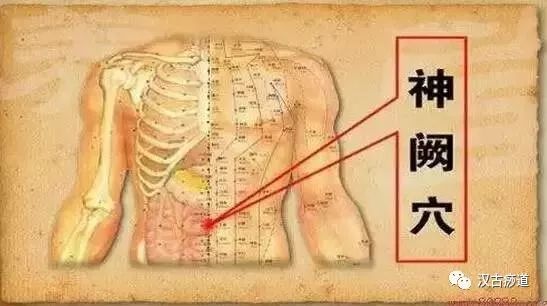
Acupuncture points: Shenque (神阙), Guanyuan (关元), Zusanli (足三里), Yinlingquan (阴陵泉), Pi Shu (脾俞) (Pi Shu directly tonifies various deficiency conditions of the spleen. Shenque tonifies the lower burner, warming Yang and dispersing cold; Guanyuan, as mentioned earlier, is mainly used to invigorate Yang energy and strengthen the foundation. Zusanli is a key point for greatly tonifying the spleen and stomach; we know that the spleen and stomach are the foundation of postnatal life, so it is often used to enhance the body’s immune response. Yinlingquan strengthens the spleen and stomach.)
Some may ask why Tianshu (天枢) is not used? Tianshu can also be used, but it should be drained first before tonifying; otherwise, it can easily cause abdominal distension, as Tianshu is primarily a draining point and not suitable for tonifying. If used for treating constipation, it will be more effective.
3. Kidney Yang deficiency
Main symptoms: Cold limbs, sore lower back, male impotence and premature ejaculation, female scanty menstruation, and low libido.
Treatment principle: Warm and tonify kidney Yang, and nourish essence and blood.
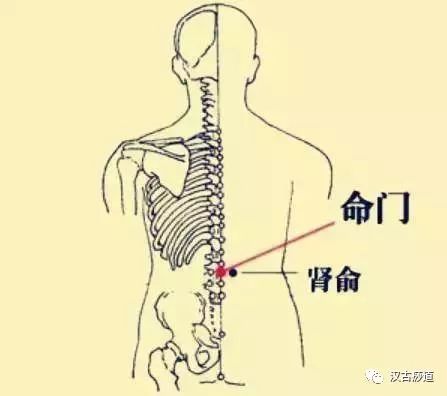
Acupuncture points: Guanyuan (关元), Shen Shu (肾俞), Taixi (太溪), Mingmen (命门) (Mingmen is on the Du meridian, which governs all Yang meridians in the body; it is the fire point of the Du meridian and is good for tonifying kidney Yang.)
4. Yin deficiency1. Lung Yin deficiency
Main symptoms: Dry cough without phlegm, dryness in the throat, even loss of voice, red tongue with little moisture.
Treatment principle: Nourish Yin and moisten the lungs.
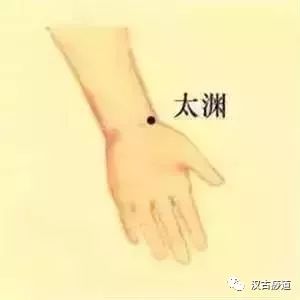
Acupuncture points: Taiyuan (太渊), Fuliu (复溜), Chize (尺泽) (Taiyuan is the source point of the lung meridian and can tonify or drain evenly; Chize is primarily a draining point, so it is often used to clear lung heat and should not be tonified. Fuliu is chosen because the root of lung Qi is in the kidneys.)
2. Spleen Yin deficiency (Stomach Yin deficiency)
Main symptoms: Dry mouth and lips, poor appetite, dry and hard stools, even dry heaving.
Treatment principle: Nourish Yin and harmonize the stomach.
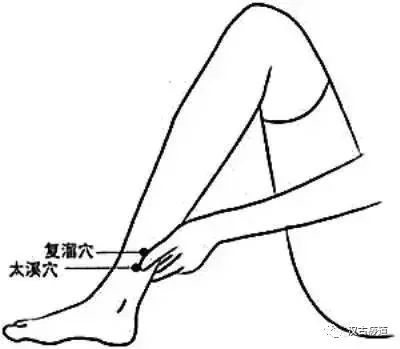
Acupuncture points: Fuliu (复溜), Neiting (内庭), Zusanli (足三里) (Zusanli, for strengthening the spleen and stomach, can only be tonified with needles; moxibustion has a greater warming effect, thus this condition belongs to Yin deficiency with excess heat. Neiting is primarily for draining stomach heat, and since the spleen and stomach are interrelated, it is often used for this condition. Fuliu is good for nourishing Yin; it should be tonified, as draining would exacerbate Yang excess.)
3. Liver Yin deficiency
Main symptoms: Irritability, headaches, dizziness, tinnitus, dry eyes, light sensitivity, or numbness in limbs, flushed complexion, red tongue with little moisture.
Treatment principle: Nourish liver Yin.
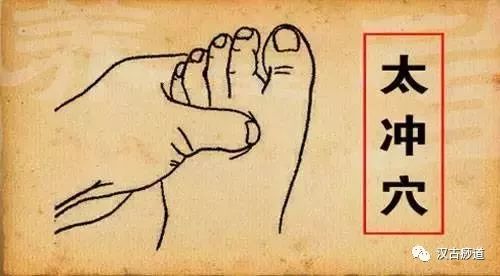
Acupuncture points: Ququan (曲泉), Fuliu (复溜), San Yin Jiao (三阴交), Taichong (太冲) (Ququan plays an important role in nourishing liver Yin, so tonifying it can enhance liver nourishment. Fuliu, on the kidney meridian, mainly nourishes the kidneys through Yin nourishment. San Yin Jiao, as mentioned before, can treat all Yin deficiency conditions and blood disorders, which is also the purpose of using San Yin Jiao. Taichong can be drained to regulate Qi and treat dizziness.)
4. Kidney Yin deficiency
Main symptoms: Dizziness, tinnitus, dry mouth and throat, easy hair loss, loose teeth, red tongue with little moisture.
Treatment principle: Nourish kidney Yin.
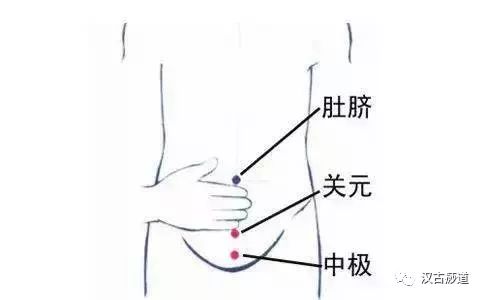
Acupuncture points: Fuliu (复溜), Taixi (太溪), Shen Shu (肾俞), Zhongji (中极) (Fuliu, Taixi, and Shen Shu are core points on the kidney meridian; Shen Shu is mainly used to tonify kidney Qi, Fuliu nourishes Yin and tonifies the kidneys, and Taixi can tonify kidney Qi and nourish Yin. Zhongji regulates the body’s water pathways but is particularly adept at the lower body’s water pathways; tonifying it can help with urinary issues, while draining it can promote urination and reduce swelling, which is also a core point for weight loss.)
For more related content, click the link to view in detail →
① Basic Theory of Traditional Chinese Medicine (Essence Edition)
② Warning from a 22-year-old sudden death!
③ This disease exhausts the heart and ruptures blood vessels… You guard against it every day, but you are not doing it right!
④ Scientific health preservation in winter, do these three things, and you won’t get sick all winter!
⑤ Winter health preservation (1) (suitable for all groups, please share)
⑥ Comprehensive articles on winter health preservation and parenting (reflections after a public welfare event)
Feel free to share this in your circle of friends
Your small effort may be just what others need!
If you have questions about parenting, health, etc.Please leave a message at the bottom of the article
We guess you might like
Nutritionist Wang Dan’s public platform operation guide
Should calcium be supplemented in summer?
About herpetic pharyngitis (including hand-foot-mouth disease, probiotics, lactoferrin, etc.)
Babies lacking vitamins
Can calcium and zinc be supplemented together? (How to determine if a baby lacks calcium and zinc)
Probiotics can double the effect!
Looks good when young, but ugly when grown up? These habits of babies must be changed!
(Warm reminder: After watching on your phone for five minutes, please let your eyes rest.)
Nutritionist Wang Dan teaches you how to solve the problem of babies waking up at night!
Early education courses for babies aged 1-36 months, a must-read for mothers!
Urgent reminder! Two cold medicines, nationwide suspension and production halt!
Warning from a 22-year-old sudden death!
Platform Q&A: Neurasthenia, jaundice, constipation, etc.
People who often wake up easily at night, it is these that are blocking you
How to keep babies from getting sick in winter?Giving children fruit this way can nourish the spleen and stomach and prevent coughs and colds!
Whose genes determine the child’s appearance?
Men, you also have a physiological period!
Deliver warmth and love, donations of clothing to Yushu successfully delivered!
Diet for hand-foot-mouth disease
You must know – the 28 health golden rules
Nine looks and one touch – early knowledge of children’s illnesses
Who ruined our (baby’s) intestines – Nutritionist Wang Dan
Calcium – about after the age of 30
Do a thorough body cleanse – detoxification
You should know – the human body and zinc (save)
In one sentence, tell you the functions of seven major nutrients
Understand vitamins in one picture
Nutritionist Wang Dan suggests the timing and order of introducing complementary foods for babies
Complementary food section for babies – adding seasonings
Written for Chinese mothers: There is a kind of cold that makes mothers feel you are cold!
If you have a son, you should raise him this way
Teach you how to pat the belly – many benefits
About haze (please forward quickly)

